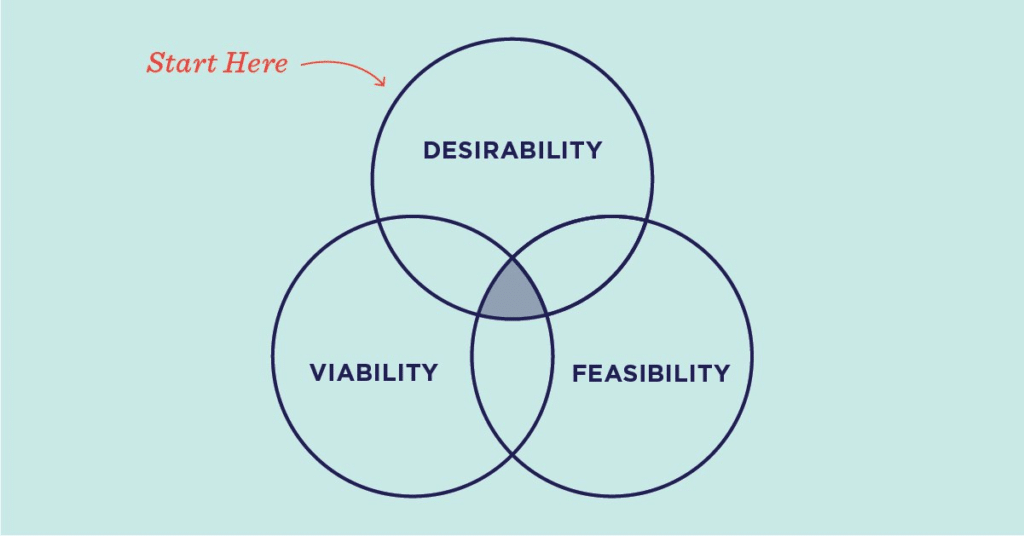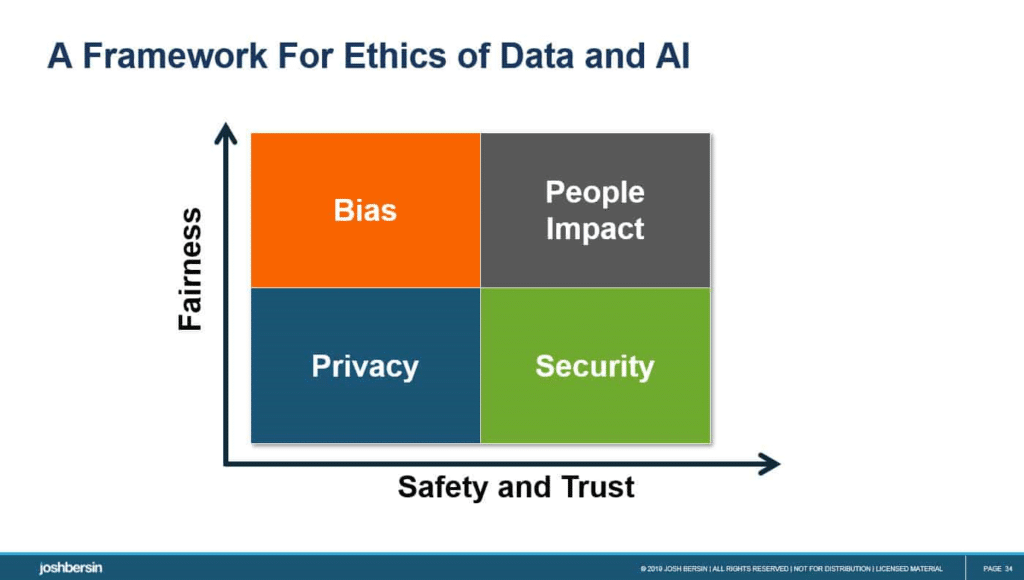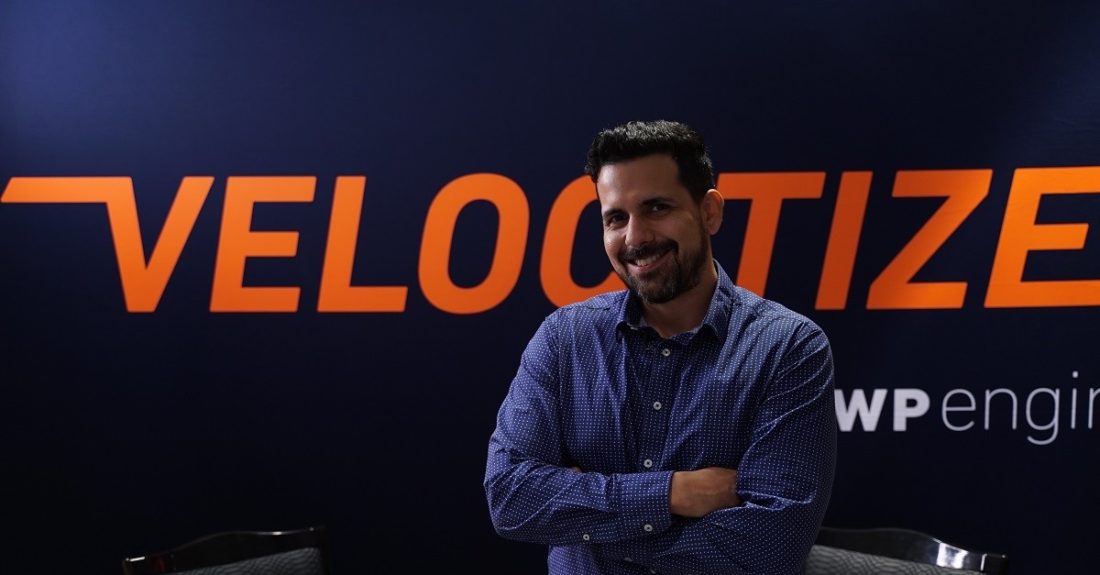It’s a safe space to talk about where things are going or high level discussions about design and how to collaborate and work better.
Daniel García is the Partner & Managing Director of Kluge Interactive, a creative agency helping technology companies enhance their products, improve their customer experiences, and support their marketing departments by embracing a human-centered design approach to innovation.
In this episode of Velocitize Talks, García shares his thoughts on the role of design thinking in user experience and how brands can evolve to meet market needs with smart design.
Designing for humans (2:21)
Design thinking is some of the tools or techniques we use to solve problems for our clients. In design thinking, we think about it as finding the intersection of viability, desirability, and feasibility.

Design thinking is a human-centered process for creative problem solving. It forces brands to think of who they’re designing for to answer the question: What’s the human need behind it?
As García sees it, you need to start the design process with understanding what’s desirable from the user perspective. “If you leave your user out of it or behind at [any] point, it is going to catch up to you,” García says. “You start seeing users demand more from their brands and clients and their apps and their services.”
García points out that people are now more used to exceptional user experiences like Airbnb and Uber. This raises the bar for how brands employ design thinking to create better products, services, and internal processes.
The benefits of change (3:24)
[Experiential design] requires a lot of effort to change from within the company. We always think that it’s good to find a side project that does that small thing that can bring value, but that makes you comfortable enough to try new things.

Getting behind a big change can be difficult for a person, much less a big brand. Experiential marketing can make a key difference in the user experience. According to a study conducted by Event Marketer, 85% of people say they’re likely to make a purchase after participating in a branded event or experience, and 91% report having more positive feelings about a brand after encountering their experiential marketing.
Kluge was looking to improve the UX for a client but the brand was nervous about implementing a new platform. Instead of changing it across the board, they tried it out in just three of its 52 countries.
“We went and talked to people and tweaked some of the things they had on onboarding,” García says. “We made it interactive, we made animations, and we improved the experience.”
By creating a small success with their client, Kluge successfully demonstrated how change can be implemented and how to create positive change with customers in mind.
Eat, drink, be merry (4:19)
It’s a safe space to talk about where things are going or high level discussions about design and then also how to collaborate and work better in design.
The founders of Kluge felt the small design community in LA was disjointed. They wanted a place where creatives could get together and talk about experiences from a designer’s point of view. They created Evenings at the Loft, a series of monthly conversations exploring the digital design process and its challenges.
The nights center around short design-centered lightning talks, casual conversation, and experiencing food and drink from different cultures. The events now pull in around 250 people and are hosted at venues around the city.
Ethics in AI (6:46)
A lot of things that have passed…about exploiting user data and privacy concerns is starting to show that we need to care about people that we’re serving.

Ethics in AI is top of mind for many consumers as well as brands. IBM published “Building Trust in AI” that found organizations will “require a significant effort to instill in it a sense of morality, operate in full transparency and provide education about the opportunities it will create for business and consumers.”
According to an Adobe survey, top-performing companies were more than twice as likely to use AI as their peers. García feels that design thinking, human-centered design, user experience and customer experience is all about keeping the user in mind. “We still need space for humans to sit down and think, is this the right thing to do for us as a company and for our customers,” says García.
In addition to being transparent with data use, marketers need to train AI to be more ethical and less subjective.
There’s an uninstalled app for that (9:54)
You’re starting to see people say, Maybe I have too many apps on my phone, why do I need another app, and why should I download your app. Having a website or the ability to create a user experience without having that friction is going to be powerful.

In 2019, there were 2.47 million apps on Google Play and 1.8 million apps on the Apple store. The average person uses 25 apps per month and 96% of that time is split between just 10 apps. AppSamurai provides some insight as to why people uninstall mobile apps, from a poor registration experience to push notifications.
App crashes have led to 71% of app uninstalls, while freezing amounts to 76%. Research shows that 59% of customers uninstall an app if it’s too slow. Why? To put it simply, people have too many apps.
In fact, 90% of the downloads are used once before the app is removed. García sees a comeback with progressive web apps (PWAs), or apps going back to the web, that are reliable, fast and engaging. PWAs are beginning to be used more and more by brands and it looks as if they are creating the ultimate user experience.
For more information on Kluge Interactive, check out their website and follow them on LinkedIn. To stay up to date with García, follow him on LinkedIn.
This interview was originally recorded in LA in 2019.





Join the conversation